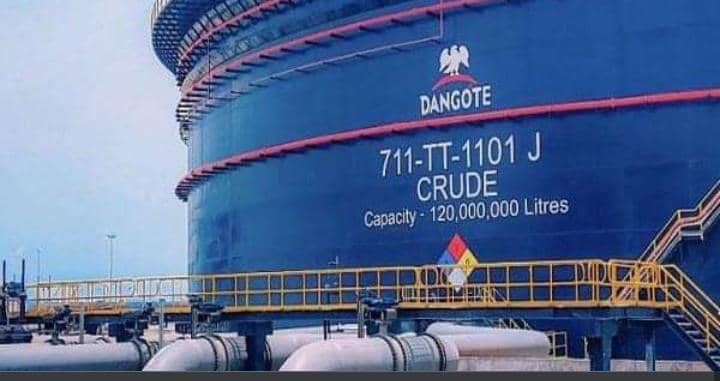
The management of Dangote Petroleum Refinery and Petrochemicals has commenced a sweeping reorganisation of its operations and workforce, citing a series of sabotage incidents that have raised major safety concerns at the 650,000 barrels-per-day facility.
In an internal memo dated September 24, 2025, and signed by Femi Adekunle, the Chief General Manager, Human Asset Management, the company disclosed that it was “constrained to carry out a total reorganisation of the plant” due to several “recent cases of reported sabotage in different units of the refinery.”
Affected employees have been instructed to surrender all company property and await further communication regarding exit clearance procedures. The refinery’s finance department has also been directed to compute all entitlements and benefits in accordance with staff contracts, pending the return of company assets.
“This Is Not a Mass Sack” — Company Official Clarifies
Despite the widespread reaction following the circulation of the disengagement notice, a senior official of the refinery told jounalists on Friday that the development has been misinterpreted as a mass layoff.
“Yes, the letter is authentic. But the interpretation is misleading,” the official said. “This action is targeted and based on certain findings within the system. It’s not connected to union activities or general downsizing.”
According to him, the company is taking proactive steps to plug operational leakages and protect critical infrastructure, following repeated instances of internal sabotage.
“This is a clean-up exercise. It’s not a sack. That’s why the word ‘termination’ was not used. Once the issues are resolved, those cleared of wrongdoing could be reabsorbed.”
The source added that the decision to carry out the move abruptly was to prevent those involved from covering their tracks or obstructing internal investigations.
“When you’re dealing with sabotage, you don’t give a two-week heads-up. You act fast to avoid compromise.”
The company insists that refinery operations remain active, and that both Nigerian and expatriate staff continue working.
“Only specific individuals were affected those who received the letter. Anyone not involved in any wrongdoing has nothing to worry about,” the official added.
Leaked Disengagement Letter Confirms Restructuring
A copy of the disengagement letter, was addressed to employees of both Dangote Petroleum Refinery & Petrochemicals FZE and Dangote Industries Free Zone Development Company.
“In view of the many recent cases of reported sabotage in different units of the Petroleum Refinery leading to major safety concerns, the Management is constrained to carry out a total re-organisation of the plant,” the letter reads in part.
Affected employees were notified that their services were no longer required effective September 25, 2025, and were directed to return all company items and await details of their clearance schedule.
The finance department, the letter noted, would process exit entitlements “in line with the conditions of service,” minus any outstanding debts owed to the company.
Mounting Pressure from Labor Unions and Market Stakeholders
This latest shake-up comes amid growing tension between Dangote Refinery and the Nigeria Union of Petroleum and Natural Gas Workers (NUPENG), which has previously accused the company of high-handedness and questionable labor practices.
The union recently warned against what it described as an emerging pattern of unfair treatment of workers and raised red flags over the company’s safety and human resource protocols.
Dangote’s operations have also been strained by disputes with the Depot and Petroleum Products Marketers Association of Nigeria, who accuse the company of imposing rigid product distribution terms that risk destabilizing the downstream market.
Background: Africa’s Largest Refinery Under Scrutiny
The $19 billion refinery, which began operations in 2024 amid high expectations of transforming Nigeria’s petroleum sector, has faced a rocky start, with operational turbulence, labor unrest, and now, internal sabotage allegations threatening its early momentum.
Though the refinery remains a cornerstone of Nigeria’s plan to achieve fuel self-sufficiency, recent developments suggest that internal reforms, better governance, and stakeholder engagement may be urgently needed to keep the massive facility on track.



